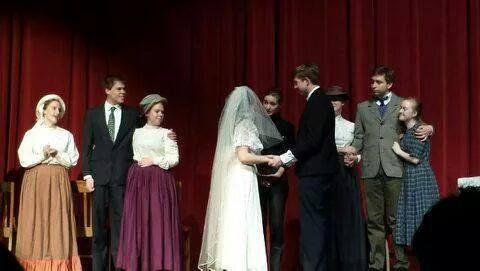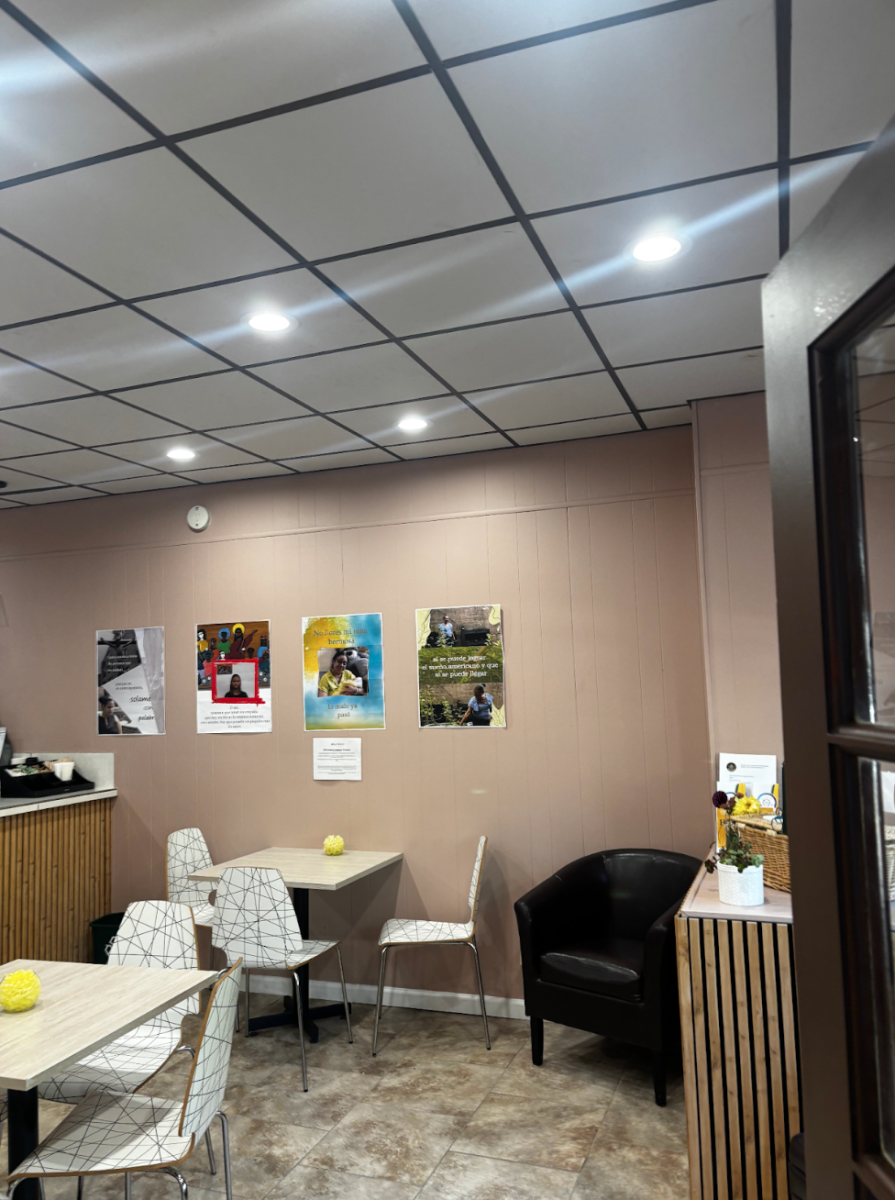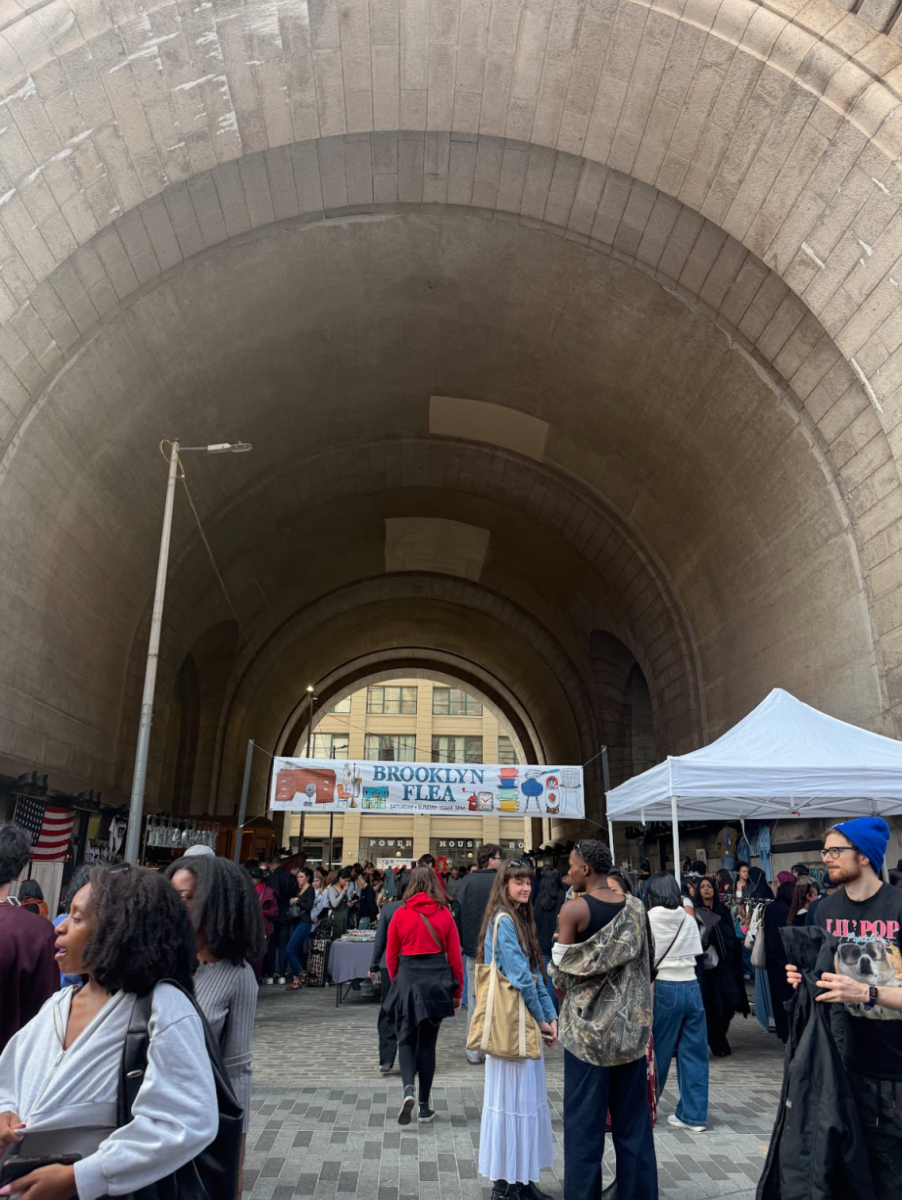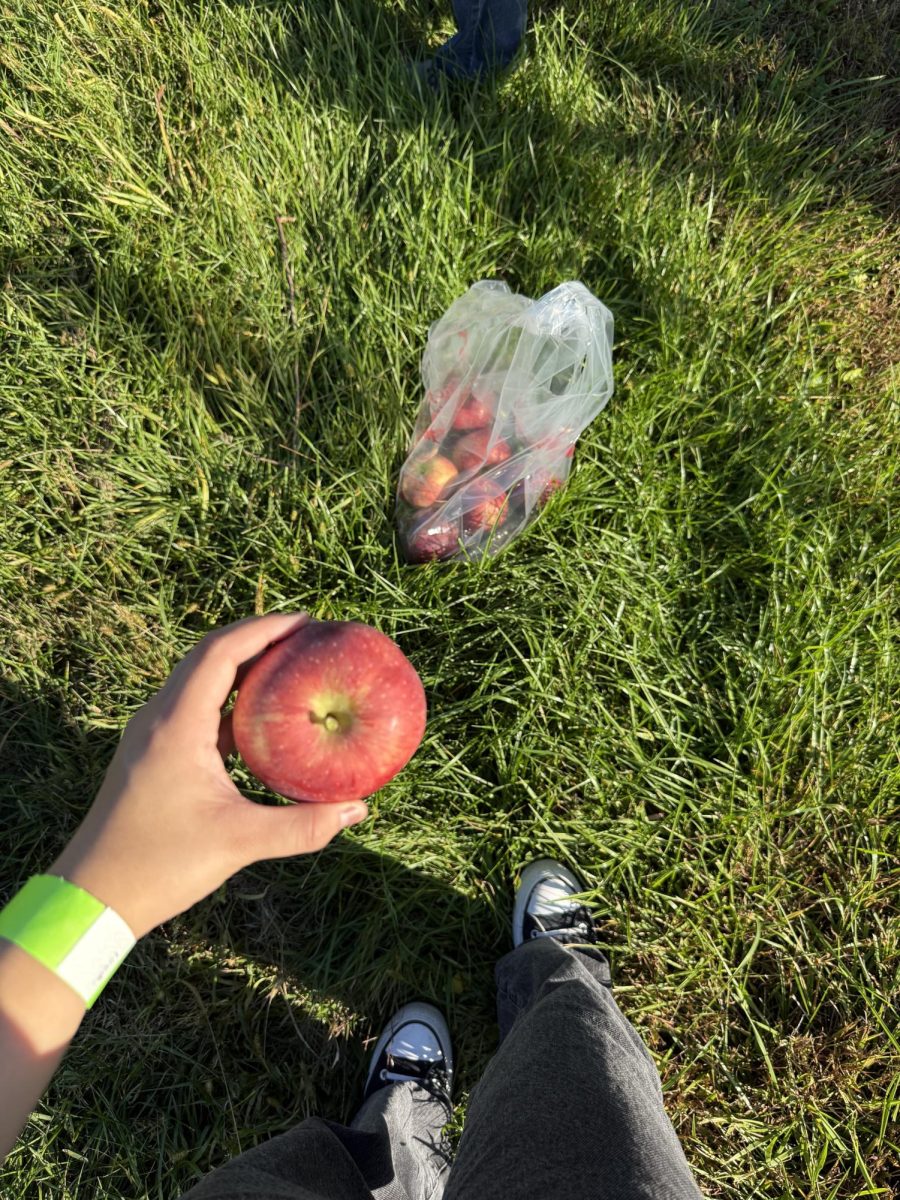
By Amanda Giglio
Theatrical Outreach Program’s production of Our Town gave me more to contemplate than my midterms. Based on Thornton Wilder’s 1938 play, Our Town tells the story of the lives and deaths of the average citizens of a fictional town in New Hampshire called Grover’s Corners.
The interesting part of the show is how it is set up, since TOP strove to make the show as similar to the original as possible. Using Wilder’s metatheatrical style, the play’s narrator, Jane Skapek, FCRH ’16, played the stage manager. In Our Town the stage manager is completely aware of her relationship with the audience. She breaks the fourth wall and addresses the audience directly. She openly thanks the characters for showing the audience their lives and skips ahead to important parts in the lives of the two main families, the Webbs and the Gibbs. This interaction was a little confusing at first, but its uniqueness added to the show.
The play is separated into three acts, each being a significant section of every life. It begins with the “Daily Life” of the town in 1901 and transitions to “Love and Marriage” three years later, with the wedding of Emily Webbs and George Gibbs. The third act takes a turn for the strange with “Death and Dying.” This act takes place nine years after Act Two, introducing those who have died since then in the small town’s cemetery and beautifully portraying how every minute of life should be valued. In line with the original set, the Collin’s Auditorium stage was sparsely designed. The only sets used were two tables and a handful of chairs to signify the two households. Also, the actors pantomimed many actions instead of having props.
“The bare set drew the attention toward the actors, who were incredible,” said Molly Crawford, FCRH ’17. “I thought the play was very touching and relatable.”
Mary Kate O’Toole, FCRH ’17, and Liam Paris, FCRH ’17, played the main protagonists, as the play followed their characters, Emily Webb and George Gibbs, respectively, through their relationship. Stealing the show with her portrayal of Mrs. Gibbs, Elisabeth Finn, FCRH ’17, completely changed character from life into death, showing the stark transition that takes place. Even with the seriousness and thought behind most scenes, there is room for some comic relief through the character of Mr. Webb, played by Max Beyer, FCRH ’16. His awkward remarks and demeanor made the audience laugh, signifying the humor that can come with life. Student directors Emily Hill, FCRH ’16, and Rachel Sternlicht, FCRH ’17, did a wonderful job representing the beauty and heartfelt work Our Town is, just as the actors on stage passionately portrayed their characters.
TOP’s production showcases the easily relatable importance of appreciating every small moment of life. The stress of midterms may have taken my mind off the importance of living life to the fullest, but this show gave me motivation to continue studying.
__________
Amanda Giglio is the Assistant Culture Editor for The Fordham Ram.










































































































































































































